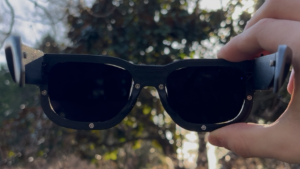The iKnife, like its name suggests, is an “intelligent” knife designed for surgeons to test the health of a patient's tissue as they operate.
The scapel was combined with smart sensor technology that can tell the surgeon whether the flesh they are cutting into has any degree of cancerous tumour. The iKnife provides this information instantly, cutting down the 30-minute waiting period required by conventional tissue scanning devices.
Devised by researchers at Imperial College London, the intelligent knife was tested on 91 patients and returned a 100 per cent rate of accuracy in detecting harmful tumours. The study was published in the Science Translational Medicine journal.
“With the iKnife, we’re able to analyze the individual components that make up different tissues and tell them apart,” Zoltán Takáts, PhD, creator of the device and a professor of analytical chemistry at Imperial College London, explained in a statement. “So, in surgery, you would know exactly what type of tissue you’re cutting through.”
The design is based on electrosurgery, a commonly used modern form of surgery which involves sending an electrical current to the tip of the scalpel. In doing so, the blade takes on ferociously high heat which allows it to vapourise tissue as it slices through it. This method also reduces blood loss drastically.
The resulting smoke is funneled through a thin tube in the body of the iKnife where a computer can analyse the molecular content of the vapour. This vapourised form of the tissue reveals the presence of corruptive cancer cells which are hard to detect otherwise.
Co-author of the smart scalpel’s trial study, Professor Lord Darzi says it is important that surgeons are able to distinguish between healthy and unhealthy tissues as they perform operations.
“In cancer surgery, you want to take out as little healthy tissue as possible, but you have to ensure that you remove all of the cancer. There is a real need for technology that can help the surgeon determine which tissue to cut out and which to leave in. This study shows that the iKnife has the potential to do this, and the impact on cancer surgery could be enormous.”
Right now, the research team are focused on identifying and treating ovarian cancer. In a study conducted last year, the doctor's tested numerous samples that were collected during surgery. The iKnife’s results were compared with pathology reports. They found that the device was able to distinguish ovarian cancer from normal tissue with 100 percent accuracy. It was also able to identify various parts of the reproductive system 93 to 100 percent of the time.
Their hope is that the device will allow surgeon's to create a more tailored approach to ovarian tumor removal as well as other cancerous growths.
“If the iKnife can give us an accurate diagnosis during the operation, it could completely change the surgical approach we choose,” says David Phelps, BM, DipHE, MRCOG, a Cancer Research UK-funded surgeon at Imperial College London and member of the team.
More on medical technology and design:
Ugandan graduate on BreastIT, a cancer-detecting glove
This enhanced man-made skin graft helps burn victims heal
Four designers are looking to redesign the gynaecology experience







